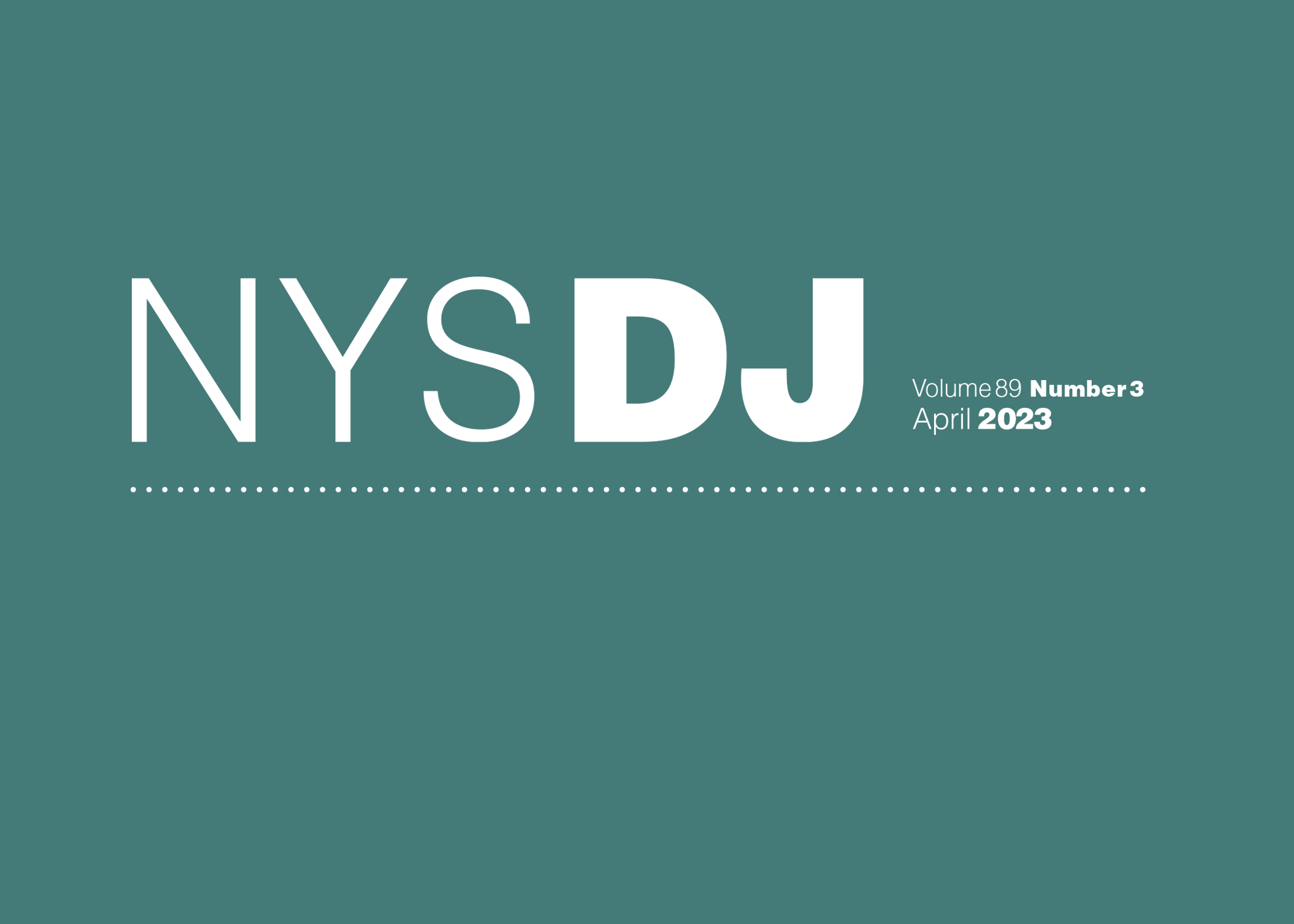
6 minute read
General News

Dr. Araujo
Araujo Named Dean UB School of Dental Medicine
MARCELO W.B. ARAUJO, D.D.S., PH.D., an internationally recognized clinical researcher and epidemiologist who currently serves as chief science officer of the American Dental Association and chief executive officer of the ADA Science & Research Institute (ADASRI), has been appointed dean of the University at Buffalo School of Dental Medicine. The appointment is effective May 15.
Dr. Araujo succeeds Stefan Ruhl, PhD, who has served as interim dean of the School of Dental Medicine since December 2021. School officials, in announcing his appointment, noted that he has a broad knowledge and extensive experience in clinical research and medical and scientific affairs, as well as a strong commitment to improving oral health globally through research and public health policy.
Dr. Araujo joined the ADA in 2015 as vice president of its Science Institute and was named the ADASRI’s chief science officer and chief executive officer in 2019. He has provided strategic leadership for the ADA’s research enterprise, developing collaborative opportunities for the ADA’s key scientific initiatives, increasing grant funding and enhancing the ADASRI’s impact.
Dr. Araujo earned his Ph.D. in epidemiology and community health and a master’s degree in oral sciences from UB, where he also completed a fellowship in periodontology research and teaching. He received his D.D.S. and a certificate in periodontology from Universidade Gama Filho in Rio de Janeiro, Brazil. He previously held faculty appointments in both UB’s School of Dental Medicine and the School of Public Health and Health Professions.
Dr. Araujo is an active clinical researcher who has published extensively on impactful issues in dental medicine. He has more than 25 years of experience in clinical practice, academia, regulatory and medical affairs. His current work focuses on developing guidelines for antibiotic prescriptions for dentists and periodontists and is supported by the National Institutes of Health.
Dr. Araujo is a member and upcoming chair of the American Association for Dental, Oral, and Craniofacial Research’s ethics in dental research committee, and he serves on the medical advisory board for the HPV Alliance.
In recognition of the strength and impact of his work, he received the International Association for Dental Research and American Association for Dental Research William J. Gies Award for clinical research, the International Distinguished Alumnus Award from the UB Alumni Association and is an honorary member of the American Academy of Periodontology.
Gum Inflammation Parallels Novel Cytokine Score
RESEARCHERS AT NYU College of Dentistry have developed a single score to describe the level of cytokines in the saliva, and this score is linked with the severity of clinical gum inflammation, according to a study published in the journal PLOS ONE.
While more research is needed to test the cytokine score, it could hold promise for measuring how well a patient responds to treatment for periodontal disease, predicting gum disease recurrence, or detecting ongoing inflammation related to systemic diseases.
“Periodontal inflammation is not just apparent upon examination, but is reflected in the patient’s saliva,” said Angela Kamer, D.M.D., M.S., Ph.D., associate professor of the Ashman Department of Periodontology & Implant Dentistry at NYU Dentistry and the study’s senior author.
Periodontal disease results from the complex interaction between an imbalance of healthy and unhealthy bacteria under the gumline and the immune system’s response. This response produces high levels of cytokines—small proteins that signal the immune system—in the inflamed gums, especially pro-inflammatory cytokines such as IL-8, IL-1b, IL-6 and TNFa
Periodontal disease is also associated with systemic conditions, including cardiovascular disease, diabetes and Alzheimer’s. Scientists believe that gum inflammation contributes to these conditions through both indirect pathways (cytokines boosting systemic inflammation) and direct pathways (cytokines traveling to a specific organ like the heart or brain), but studying this is difficult due to the challenge of measuring cytokines in the fluid found deep in the pockets in the gums.
Fortunately, cytokines are also found in the saliva, which is easier to collect. In the PLOS ONE study, the researchers wanted to know if clinically detected gum inflammation could predict the level of cytokines found in saliva.
“Salivar y cytokines are a window into the molecular makeup of the oral environment,” said Vera Tang, D.D.S., M.S., clinical assistant professor of the Ashman Department of Periodontology & Implant Dentistry at NYU Dentistry and the study’s first author.
The researchers evaluated the gums and saliva of 67 adults, ages 45 and older, who had some degree of periodontal disease but were otherwise healthy. To measure their clinical periodontal inflammation, the researchers used a formula called the Periodontal Inflamed Surface Area (PISA), which is calculated using measurements of the depth of pockets in the gums and bleeding upon probing. PISA provides a single measure of periodontal inflammation; a higher PISA score indicates worse inflammation.
Participants were also asked to spit into sterile tubes to capture saliva samples, which were then analyzed to measure a range of both pro- and anti-inflammatory cytokines: IL-1b, IL6, IL-8, IL-13, TNF-a, and IL-10. Led by statistician Malvin Janal, Ph.D., the researchers used two different ways (the Cytokine Component Index and Composite Inflammatory Index) to combine these cytokines into a single score.
They found that PISA scores were significantly associated with the new cytokine scores, independent of other factors, including age, gender, smoking and body mass index (BMI). The higher a cytokine score, the greater the periodontal inflammation.
“This demonstrates that a single score encompassing several salivary cytokines correlates with the severity of periodontal inflammation,” said Leena Palomo, D.D.S., M.S.D., professor and chair of the Ashman Department of Periodontology & Implant Dentistry at NYU Dentistry, and a study coauthor.
The researchers caution that more research is needed to validate the cytokine score in patients with different health conditions, as well as those with all levels of periodontal disease, including healthy gums and early-stage gum disease. However, if the cytokine score is validated in larger and more diverse patient populations, it could be used to better understand periodontal disease progression and recurrence, as well as the potential connection to other systemic conditions.
Additional study authors include Babak Hamidi, D.D.S., M.P.H.; Cheryl Barber, M.S., M.P.H.; and Benjamin Godder, D.M.D., of NYU Dentistry. This research was funded by the National Institutes of Health (R03-DE023139).










